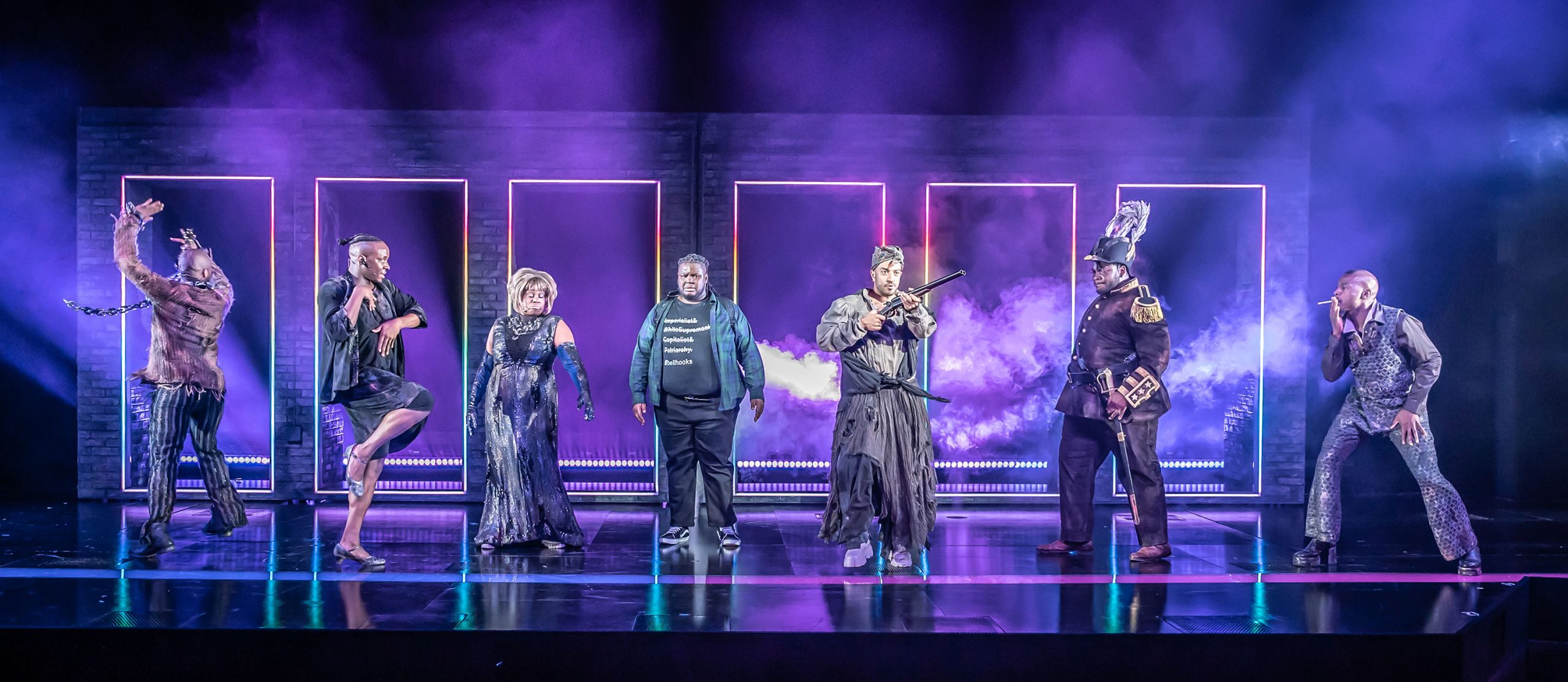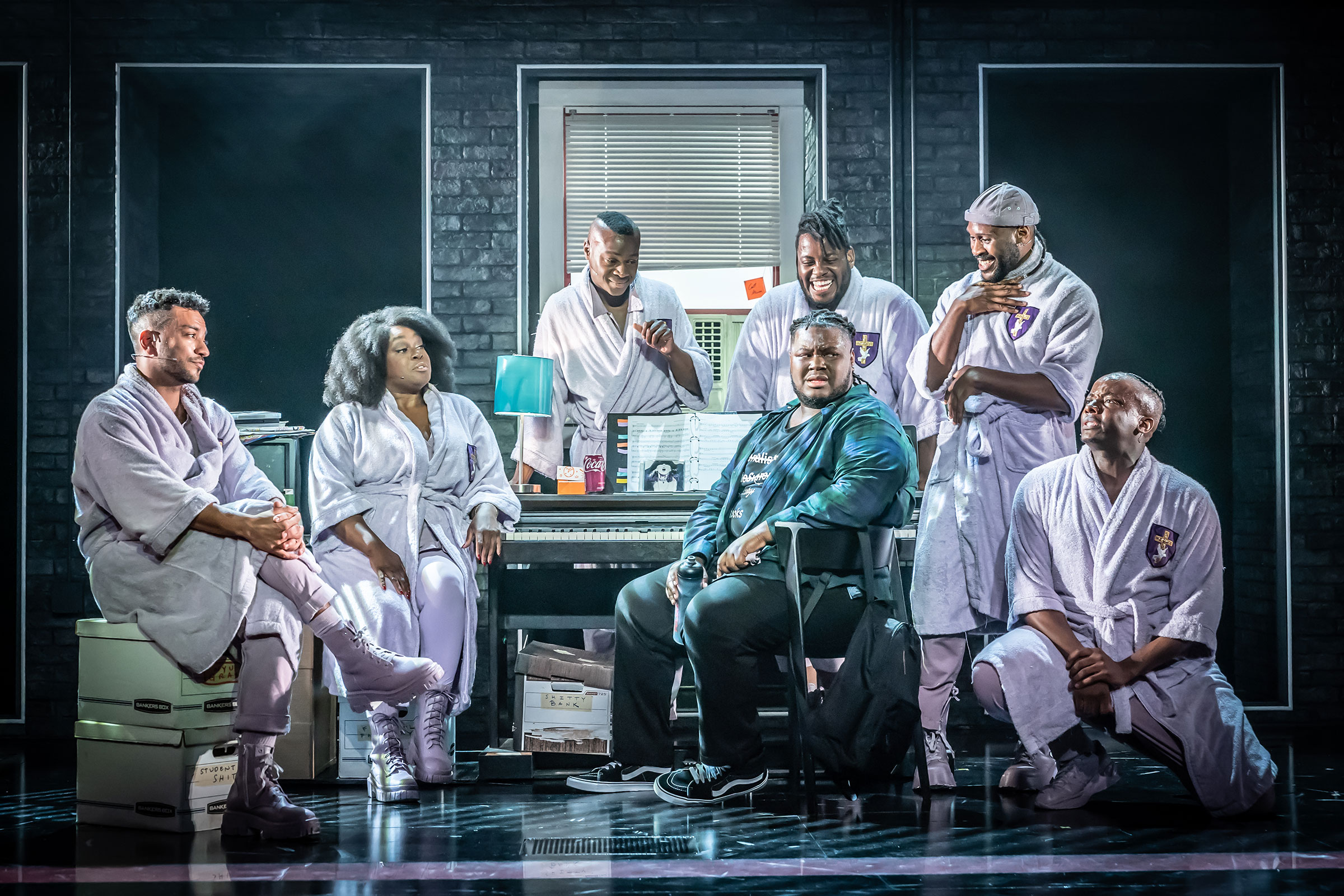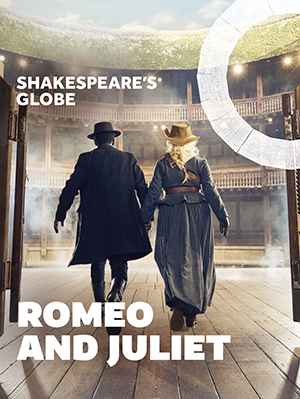
A Strange Loop, the groundbreaking and award-laden Broadway musical written by Michael R. Jackson, finally arrives on these shores for a limited run at The Barbican, and it delivers on the hype.
This innovative and electrifying show takes audiences on an abstract ride through the complex and often hilarious inner workings of the human psyche, with meta storytelling, powerful performances, and thought-provoking themes that are often entertaining and introspective.
At the heart of A Strange Loop is Usher, a black, gay writer who is working as an usher at a “Disney” musical while struggling to find his own voice in the industry. As the show delves deep into Usher’s mind, we witness the challenges he faces, his insecurities, and the societal and familial pressures that constantly threaten to engulf him. The musical bravely confronts issues of race, sexuality, body image, and self-acceptance, unravelling the layers of Usher’s identity with raw honesty.
“The musical bravely confronts issues of race, sexuality, body image, and self-acceptance”
Kyle Ramar-Freeman excels as Usher, showcasing impressive vocal range and an unwavering stage presence while occupying the stage for nearly the entirety of the show’s runtime. He is at his best when his vulnerability comes to the fore through song, such as in the number Inner White Girl, which bravely and beautifully exposes the insidious nature of white privilege, highlighting the stark contrast between the protagonist’s experiences as a black individual who is boxed in through society’s ideals and the privileges afforded to those who embody whiteness.

Michael R. Jackson’s writing is a masterclass in wit and vulnerability. His lyrics are razor-sharp and infused with biting humour, tackling sensitive subjects with unflinching bravery. The songs are memorable and expertly crafted, seamlessly blending genres from gospel to early 00s pop to create a unique, dynamic and absurd musical landscape. However, the balance between everything Jackson wants to say and the way he wants to say it is relentlessly consistent. Poignant introspection constantly meets hilarity, and it leaves you having had a truly emotionally resonant experience without ever struggling to grasp the more serious themes.
This is particularly noticeable during a scene where Usher visits his doctor, who urges him (almost aggressively) to go out and have sex, which is then followed by the song “Exile in Gayville,” which depicts Usher’s difficulty navigating gay dating apps. On face value, it is stylish, energetic, even upbeat, but it evolves into pathos as Usher faces rejection from almost everyone for being “too Black,” “too fat,” and “too feminine.”
“The songs are memorable and expertly crafted, seamlessly blending genres from gospel to early 00s pop to create a unique, dynamic and absurd musical landscape”
The ensemble cast, Sharlene Hector, Nathan Armarkwei-Laryea, Yeukayi Ushe, Tendai Humphrey Sitima, Danny Bailey, and Eddie Elliott, all portray the layers of Usher’s identity in a beautiful cocktail; they stand out and steal the show in solo moments and come together fluidly and ferociously for the ensemble numbers, effortlessly cosplaying as Usher’s family or transforming into a myriad of characters that populate Usher’s mind, none more so than in a raucous and bawdy sequence where they appear as Usher’s ‘ancestors’. Each performance is truly bursting with energy, authenticity, and edge.
While the show’s themes of self-love, acceptance, hope, and finding one’s voice are all deeply human experiences, some references (and language) are so deeply rooted in the African American experience that they might distance a British audience, especially those unfamiliar with the filmmaker and mogul Tyler Perry, who heavily influences the narrative.
However, these unflinchingly honest and unforgiving elements are precisely what make A Strange Loop such a must-see.

While Usher’s journey (and wholly amusing dislike of Perry’s work) is specific to his experiences as a black, queer artist, the musical transcends these labels, reminding us that the struggle for self-acceptance and finding one’s voice is a perennial and universal quest. It challenges preconceived notions, particularly with regular references to religion and Aids. By regularly addressing the notion of Aids as “God’s punishment,” the play dares to push boundaries, yet remarkably, due to Michael R. Jackson’s meticulous crafting, nothing feels gratuitous, and ultimately it all serves to encourage audiences to confront their own biases and fears and preach empathy and understanding.
A Strange Loop is a triumph of storytelling and performance. Bold writing, coupled with an exceptional cast, results in a powerful theatrical experience that wields its inclusivity and bravery with immense power.






























